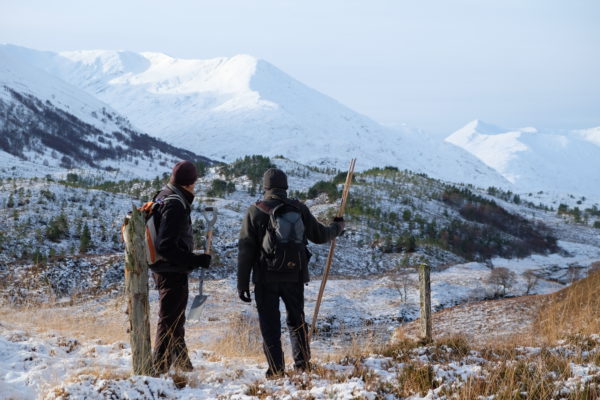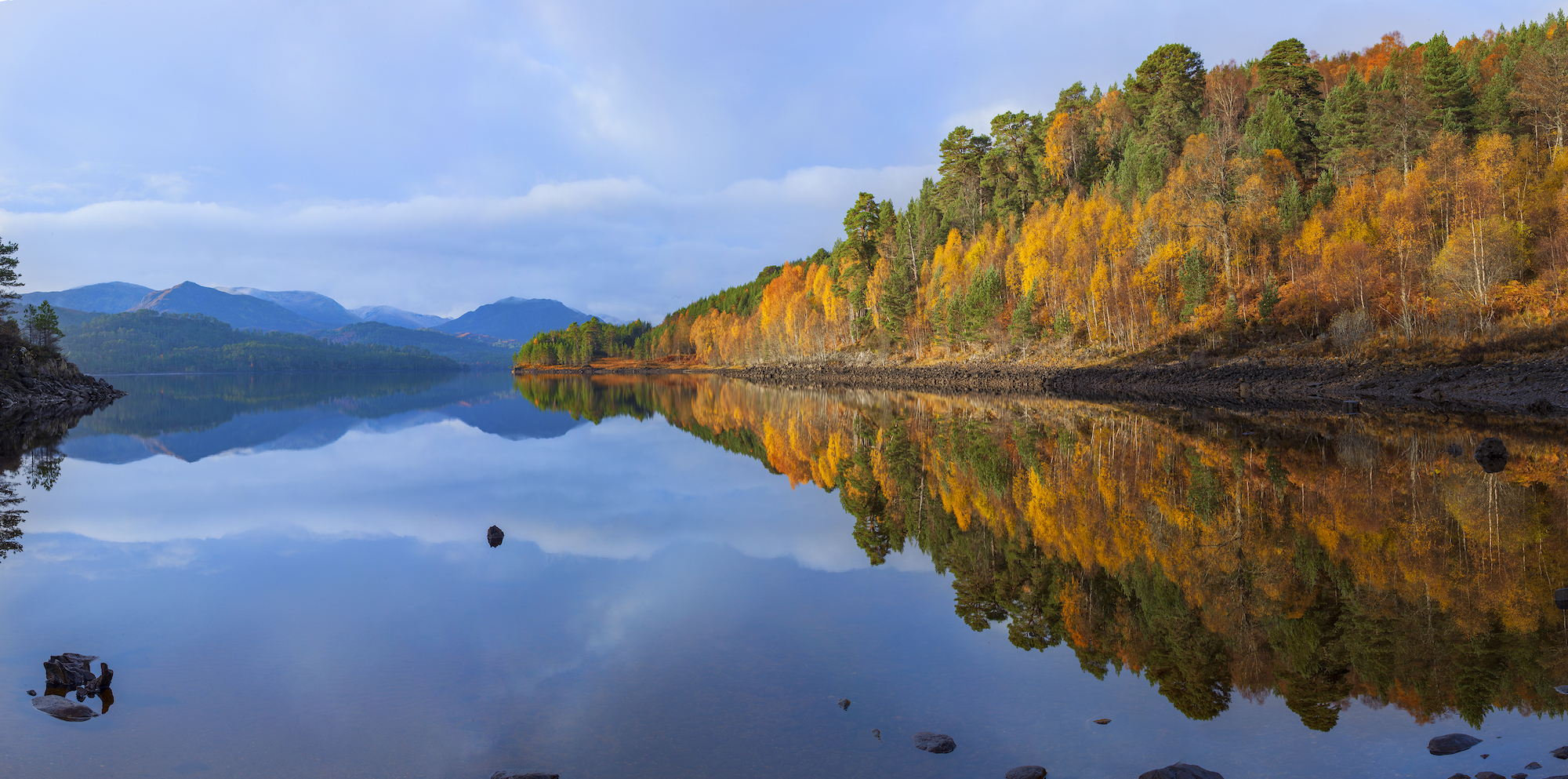30-year project joins prestigious European group of awe-inspiring rewilding areas.
An ambitious 30-year landscape-scale rewilding initiative to link up a majestic sweep of the Scottish Highlands as one vast nature recovery area connecting Loch Ness to Scotland’s west coast has been launched by charity Trees for Life, and joins a select group of prestigious European rewilding areas. The Affric Highlands initiative follows three years of consultation between Rewilding Europe, Trees for Life, and other local partners and stakeholders. It will restore nature across a network of landholdings potentially covering an area of over 500,000 acres stretching from Loch Ness across the central Highlands to Kintail in the west, and encompassing Glens Cannich, Affric, Moriston and Shiel.
Trees for Life has brought together a broad coalition of landowners, communities and others to boost habitat connectivity, species diversity, and social and economic opportunities in the region, while tackling climate breakdown. With community involvement and partnership working central to the project, a diverse group of 20 landowners covering at least 25% of the total area and six organisations are already on board, with hopes that more will join. Work is underway to further involve local people, with practical action to connect areas of rewilding land due to begin in 2023.
Affric Highlands
During a ceremony attended by partners and stakeholders at Glenurquhart Public Hall in Drumnadrochit by Loch Ness, Affric Highlands was officially welcomed by Rewilding Europe as the ninth member of its network of large pioneering rewilding areas – taking the organisation one step closer to its ultimate goal of 10 such areas in Europe. Rewilding Europe’s eight other awe-inspiring rewilding areas are Portugal’s Greater Côa Valley; the Danube Delta in Ukraine, Romania and Moldova; Romania’s Southern Carpathians; Croatia’s Velebit Mountains; Italy’s Central Apennines; Bulgaria’s Rhodope Mountains; the Oder Delta in Germany and Poland; and Swedish Lapland.
“With Scotland’s rewilding movement growing rapidly – and the Scottish Rewilding Alliance calling for Scotland to become the world’s first Rewilding Nation, with the rewilding of 30% of the country’s land and sea by 2030 – Affric Highlands will take large-scale nature recovery to a new level, providing a catalyst for the local economy at the same time,” said Steve Micklewright, Chief Executive of Trees for Life. He continued: “The Highlands have huge potential to help nature to come back and so help people to thrive, and to make a leading contribution to tackling the global climate and nature emergencies. We are delighted Affric Highlands is now one of Rewilding Europe’s large rewilding areas that are inspiring hundreds of other rewilding projects across the continent.”
Because engaging and involving stakeholders from the beginning is crucial to the success of any rewilding initiative, Rewilding Europe has been working with Trees for Life to lay the foundations for this over the past three years – including through meetings with over 50 local stakeholders, drawing on experience from other major rewilding sites across Europe, and a scoping study.
A beacon of hope

As well as connecting habitats, Affric Highlands will bring people together to help nature recover, and strengthen connections between communities and the wildlife on their doorsteps. Forest rewilding has been at the root of Trees for Life’s work for three decades. The charity has so far established nearly two million native trees to restore the unique and globally important Caledonian Forest at its own 10,000 acre estate at Dundreggan in Glenmoriston, and at dozens of other sites in the Highlands, including Glen Affric. In 2023, Dundreggan will become home to the world’s first Rewilding Centre – showcasing how large-scale nature recovery can give people amazing experiences, create jobs and benefit local communities. Rewilding Europe says this work in the Highlands has been a beacon of hope for reversing declines in habitat and wildlife that have left vast swathes of Scotland overgrazed, treeless, denuded, drained and over-managed, to the point that little remains unmodified by humans.
“Affric Highlands is a bold, exciting and inspiring venture for nature’s recovery as Scotland moves up the biodiversity league table. Our decision to accept the project as our ninth rewilding area reflects the hard work and achievements of Trees for Life, its volunteers and its partners,” said Frans Schepers, Managing Director of Rewilding Europe. “Including Affric Highlands in our portfolio of major European rewilding areas will help magnify rewilding’s impact in the Highlands, and put it firmly on the global map.”
The project will take a grassroots, community-driven approach that grows organically – harnessing an interdependence of nature, people and businesses to create a more resilient area for the future. Rewilding Europe’s rewilding principles, best practices and wealth of Europe-wide practical experience will help to shape and guide Affric Highlands on its rewilding journey.
Find out more about Affric Highlands at: www.treesforlife.org.uk/affric-highlands

